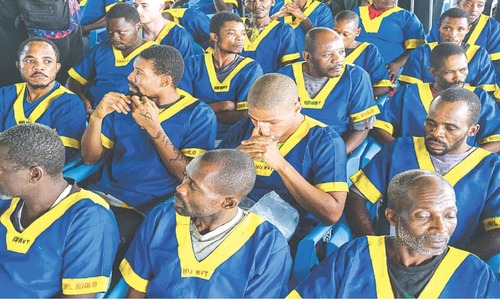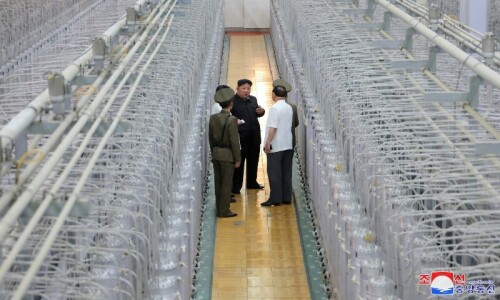ISLAMABAD: Pakistan is the second-worst country in terms of gender parity, according to a report released by the World Economic Forum (WEF) on Wednesday.
The Global Gender Gap Report placed Pakistan at the 145th spot in a survey of 146 countries. The only worse performer than Pakistan was Afghanistan.
Pakistan, which has 107 million women, closed at 56.4 per cent in the report’s gender gap index.
The Democratic Republic of Congo, Iran and Chad were the three other countries to figure among the five worst performers. The WEF report determined that Iceland was the best country in the world in terms of gender parity, followed by Finland, Norway, New Zealand, and Sweden, in that order.
On Pakistan, the report observed “this is the highest overall level of parity Pakistan has posted” since the launch of the global gender gap report by WEF in 2006.
The study praised Pakistan for making “significant improvement” across three sub-indexes, with the highest positive variation on economic participation and opportunity for women. Pakistan was among five countries with a gender gap greater than five per cent. The others were Qatar, Azerbaijan, China and India.
While wage equality carries a higher gender gap score than all other economic indicators, advances were also made vis-à-vis estimated earned income, where women’s earnings rose by four per cent over 2021. However, women’s participation in the workforce declined by 1.9 percentage points.
On educational attainment, gender parity scores for literacy, secondary and tertiary education enrolment showed improvement. The number of male and female students in secondary and tertiary education was higher in 2022 than that in 2021.
Pakistan ranked 145th in terms of economic participation and opportunity; 135th in educational attainment; 143rd in health and survival; and 95th in political empowerment.
Of the 146 countries covered by the 2022 index, the health and survival gender gap closed by 95.8 per cent, the health and survival gender gap closed by 95.8 per cent, educational attainment by 94.4 per cent, economic participation and opportunity by 60.3 per cent, and political empowerment by 22 per cent.
Although no country has yet achieved full gender parity, the top ten economies have closed at least 80 per cent of their gaps, with Iceland (90.8 per cent) leading the way.
Pakistan was ranked as the second-worst country in South Asia, too. According to the report, Bangladesh is the best country in the region for women, followed by Nepal, Sri Lanka, Maldives, Bhutan, India. Pakistan and Afghanistan.
Among the eight regions under spotlight in the report, South Asia ranks the lowest, with only 62.3 per cent of the gender gap closed. The lack of progress since the last edition extends the wait in South Asia to close the gender gap to 197 years. South Asia recorded low scores across all measured gender gaps and little progress was made in most countries since the last edition.
The economic gender gap closed by 1.8 per cent, with increases in the share of women in professional and technical roles, especially in Bangladesh, India and Nepal.
On the other hand, the share of women in professional and technical roles fell in Pakistan and the Maldives.
South Asia ranks second lowest on the educational attainment sub-index, above just sub-Saharan Africa. Literacy rate, one of the core indicators for education, saw no change in five countries. The study found that South Asia has one of the lowest regional gender parity scores for health and survival, at 94.2 per cent.
In this sub-index, only Sri Lanka closed its gender gap, while Afghanistan, Pakistan and India were the worst-performing countries globally. Sex ratio at birth remains relatively low in large, populated countries such as India and Pakistan, whereas Bangladesh, Bhutan and Sri Lanka have reached parity.
South Asia has the fourth-highest regional performance on the political empowerment sub-index, having achieved 26.3 per cent of gender parity, 0.7 percentage points lower over the 2021 edition.
Published in Dawn, July 14th, 2022














































